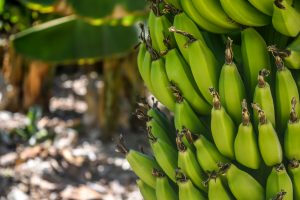Climate change and farming intensification are increasing fungal disease in banana production
 Photo Credit: Arminas Raudys
Photo Credit: Arminas Raudys
Bananas are a victim to climate change, according to a new study published in the scientific journal Philosophical Transactions Royal Society B. This research found that rising temperatures and intensifying banana production over the past 60 years have significantly increased the risk of fungal diseases in banana production. Fungal diseases thrive in warm, wet regions like the tropics where bananas also grow best. The fungus known as black leaf streak disease is currently the leading cause of yield loss in banana production. This disease is now rampant throughout Central America, which is one of the top banana-producing regions in the world. The researchers wanted to know whether the spread of disease could have been caused by rising temperatures and wetness. They assessed 60 years of climate data (temperature and humidity) across Central America, and found that optimal conditions for fungal growth have significantly increased across the region, specifically in the areas where bananas are produced. While the authors suggest this increased risk of disease was caused by climate change, they also found that areas with the most intensive banana farming also had the highest risk of disease. This suggests that more diversified and environmentally sustainable production would help slow the spread of disease.



